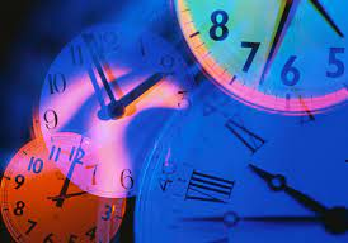A New Theory Argues Time May Not live At All — but That’s Not a Bad Thing .

As we speak, there’s a extremity playing out in drugs. Does time live? And if not, how do we explain our macrocosm? It’s an absurd notion to question the veritably fabric of our reality; the timepiece, the timetable, the humdrum of our lives has left time in bitsy fractions. These fractions make us, and we've come to be at peace with that.
The proposition is this we need a radical perspective of what it means to live. Take this study trial do chairpersons and tables live? Yes, indeed though no proposition in drugs would validate their actuality. They live because they “ crop from an underpinning drugs of patches whizzing around the macrocosm. ” Time, on the other hand, may crop out of nothing abecedarian in the universe. We're still unclear about how time surfaced, so how can we assume it exists?
In other words time may not live as a critical element of the laws of drugs; but it could still live in our world as a social construct.
“developments in drugs suggest the virtuality of time is an open possibility, and one that we should take seriously, ” wrote Sam Baron, an associate professor at Australian Catholic University, in The discussion. Baron, along with his associates Kristie Miller and Jonathan Tallant, argues that the new physical frontier would question the very actuality of time in our lived realities.
There’s a bit of drugs, calculation, and a whole lot of empirical levees. We measure our world on the base of two physical propositions general reciprocity and amount mechanics. According to a new proposition proposed by some experimenters, the current ways of understanding our macrocosm are at odds with each other leaving space for a new physical proposition to crop . This understanding would be a blend of drugs and gospel; where the question of calculation also becomes a question of further abstract ideas about being and what it means to live. That time is an impossibility in a macrocosm isn't an unbelievable notion — at least in the physical composition of actuality.
Sci- fi pictures and sitcoms have made flighty references to sundries of amount mechanics and general reciprocity; they're that bedded in our understanding of the macrocosm. The delightful part comes when they're juxtaposed together — scientists have observed these two are antithetical to each other. While amount mechanics addresses about “ how effects work in the incredibly bitsy world of patches and flyspeck relations, ” Baron notes, “ general reciprocity describes the big picture of graveness and how objects move. ”
But how does graveness work at a veritably micro scale, one that applies to the atomic world of patches? The notorious Schrödinger’s trial is one similar tale of this incongruity; without going into too numerous details, the riddle in amount mechanisms is the cat we can not see is both alive and expire at the same time.
The exact nature of this conflict remains extensively batted . “ We ’re actually living through one of the topmost similar battles the standard model of drugs versus the amount model of drugs. And depending on how you look at the double bind, time may not live at each, ” as pen Caroline Delbert explained.
But this leaves room to introduce another way of understanding the macrocosm a proposition called “ amount graveness. ” Of course, present a new frame of our reality is no mean feat. former attempts at bridging this rift include the string proposition or the circle amount graveness( that the fabric of space and time is made of a network of extremely small separate circles). Both fell suddenly in their own ways. The need still remained to talk of a proposition that could erect together our macrocosm without latching on to contradictions.
The intriguing thing with the circle amount graveness proposition was there was a curious absence of time as a abecedarian conception of reality. In other words, these raids into indispensable ways of living were bold and wild enough to suggest we could live in a world where time was n’t woven into the fabric.
And such a physical proposition, if proven, would mean that time doesn't live.
“The calculation part is simple, at least, ” Delbertnoted.However, also time, as a variable, “ If propositions like circle amount graveness do n’t take time into consideration. suppose of a three- dimensional set of equals like( x, y, z) where you remove the ‘ z ’ portion. You just have a different quantum of calculation to do now, with a different outgrowth, and arguably ‘ z ’ no longer exists. ”
Removing time out of the equation feels crazy. But this isn't a bad thing, per se. Let’s say time does n’t live — one could argue this thesis does nothing while pursuing the semantics of what makes our macrocosm. “ We suggest the discovery that time doesn't live may have no direct impact on our lives, indeed while it propels drugs into a new period, ” Baron argued. Arguably, people are looking for a sense of agency, and time provide that. The virtuality of time does n’t have to mean people lose agency it’s entirely possible to reconstruct it.
There's a wind of query blowing at alllevels.However, the one thing that has anchored humanity since the dawn of civilization is excluded, what remains? drugs also speaks of “ occasion, If time. This notion is more indirect, defies any absolutes, and thrives in the abstract.
This marriage of gospel and drugs remains limited to theoretical hypotheticals and intellectual fodder. But it's always humbling to wonder who we are, without the one thing that gives us order and agency.


0 comments:
Post a Comment
Please Comment Your Questions, Queries or Suggestions